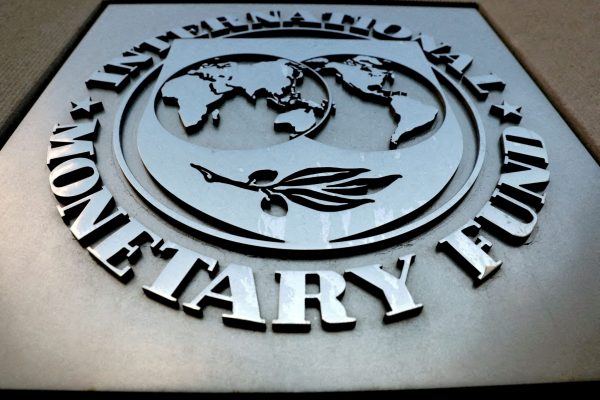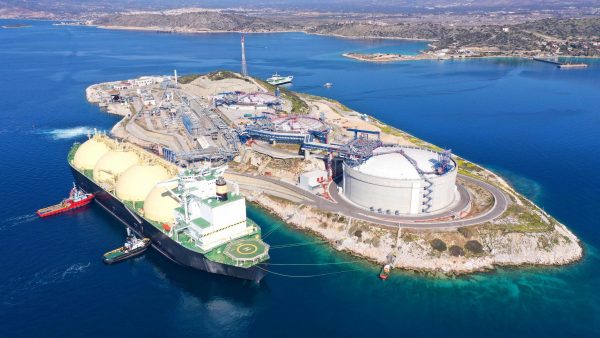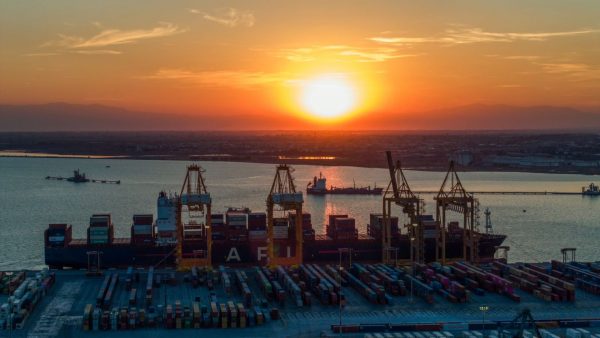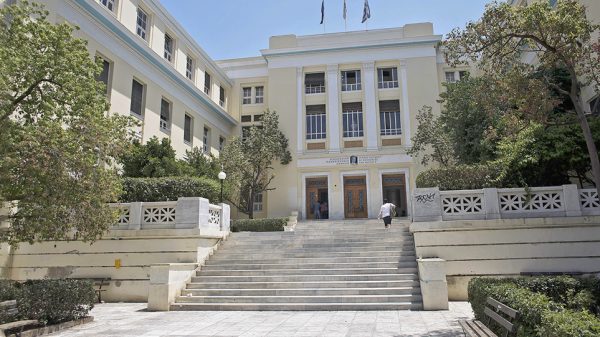
In the early 1990s, after the collapse of the Eastern Bloc, a new era began for the economies of the Balkans and wider SE Europe.
The first openings of Greek companies that saw the countries of the region as a first class opportunity for investments with high returns, were not long in coming.
In this way, the banking administrations were given the impetus to start the expansion outside Greece, with the central goal, during the first years, being the financial service of the Greek business.
Entering the Eurozone
However, the growth that made Greek groups protagonists in many SE Mediterranean countries began after joining European Monetary Union.
The financial resources were now unlimited, giving a unique opportunity to the largest banks to consolidate in the developing European economies, both with the creation of autonomous networks, and with the acquisitions of local credit institutions.
Thus, in about 7 years, they controlled almost 1/3 of the total assets in Bulgaria, Romania, Albania, and Serbia, while maintaining significant percentages in Skopje, Ukraine, and Cyprus.
In addition, the domestic industry had set foot in the Turkish banking system, after the acquisition by the National Bank of Finansbank, which was then in the TOP-5 in Turkey’s retail banking sector.
With these moves, a parallel banking system was created in 15 countries, with assets of 90 billion euros, a network of branches with 3,500 units and more than 40,000 employees.
The beginning of the end
The outbreak of the global financial crisis in the late 2000s completely overturned the tables, as it caused upheavals both in the macroeconomic level and in the Greek banking system, especially after the cut in public debt (PSI).
Three consecutive recapitalizations followed to keep the systemic groups on their feet. Anyone who did not have the opportunity to raise the necessary resources from the private sector, signed a “contract” with the European supervisor to reduce activities outside Greece.
And if after the recapitalizations of 2013 – 2014, the banks managed to keep a significant part of their investments abroad, everything changed the very next year.
The failure of the then government in negotiations with creditors and the announcement of a referendum inevitably led to the imposition of capital controls and a third recapitalization.
These developments marked the final divorce with most of the Balkan markets, but also the withdrawal of the National Bank from the Turkish market with the sale of 100% of Finansbank.
Only Alpha Bank and Eurobank kept part of their investments, as they also managed to cover the deficits of private investors in the 2015 capital increases.
The former currently operates in Albania, Cyprus, Romania and the latter in Bulgaria, Serbia, and Cyprus. Piraeus and the National Bank, on the other hand, were forced to leave all foreign markets, as they received state support for their recent recapitalization.
A new expansion is coming
Since then, of course, a lot of water has flowed under the proverbial bridge. The country has exited the memoranda, returned to the markets, confidence has been largely restored and the banks have made decisive openings for the full consolidation of their balance sheets.
In this context, plans have been reactivated to expand their sources of profit abroad. In fact, Alpha Bank and Eurobank have already taken the first steps in implementing their strategic plan.
The latter announced a few days ago the merger by absorption of its Serbian subsidiary with Direktna, which will rank it 7th among all commercial banks in the country, with a share of 6.50% in loans.
This is the first expansionary operation generally carried out abroad since the 2000s, with the acquisition of a non-domestic credit institution.
In fact, the management of Eurobank has stated that it is ready to take advantage of every opportunity that will be presented abroad in countries in which it has or does not have a presence today.
The new scheme in Serbia will have total assets of over 2 billion euros, total equity of over 300 million euros and after the full implementation of the estimated synergies, pre-forecasts and net profits of over 50 million euros and 35 million. euros respectively. Earnings per share are estimated to increase by 3% after the synergies are implemented.
On the other hand, Alpha Bank, after the capital increase of 800 million euros, will focus on the increase of financing in Romania and Cyprus, with the aim of enhancing the profitability of its subsidiaries, through the creation of a holding company that will act as an umbrella for all its activities abroad, its management aims to raise the value for the group as a whole.
Through this move, its plans that strategic flexibilities will emerge, which will allow “Alpha Bank abroad” to become a key source of profitability for the group.
Latest News

Poll: Greeks, EU Citizens Eager to Vote in European Elections
EU citizens are eager to vote in the upcoming elections for the European Parliament in June, with eight in 10 saying the current geopolitical situation makes voting imperative

Mitsotakis-Erdogan Meeting in Ankara Fixed for May 13
The Greek PM himself made the announcement from Brussels on Thursday, while he also responded to a question on Athens' intent to create a marine park in the central Aegean, an environmental initiative

Greece Aims to Boost Energy Capacity, Economy with Offshore Wind Farms
Greece’s Energy Ministry is pushing legislation to accelerate the construction of the first floating wind farms in Greek seas

Reuters: Greek Economy Surges After Decade of Pain
Nevertheless, the article also highlights some of the challenges facing the country, with a falling birthrate and labor shortages posing a threat to the long-term outlook

IMF: Greek Growth in 2024 at 2%; Debt to Ease to 158.8% of GDP This Year
Projected consumer prices are forecast to rise by 2.7%

Major Increase in Russian Natgas Imports by Greece in 1Q 2024
Russian state natgas exporter Gazprom dominated imports to the country, mostly through the overland pipeline entering via a northern frontier pipeline

Lamda Development Announces First Profitable Year for The Ellinikon Project
The ATHEX-listed developer reported 206 million euros in EBITDA for FY23, a 69%-percent increase from 2022 results

Europa Nostra Adds Sifnos, Serifos, Folegandros to Most Endangered List
Europa Nostra says three Greek islands are at risk due to surge in tourism development and rampant construction

EU Cracks Down on Social Media Influencers Making Illegal Profits
A recent EU inquiry uncovered 358 online influencers, among them 20 in Greece, found to be violating consumer laws

Greek PM Announces €2 Billion Decarbonization Fund for Greek Islands
Greece bolstered its drive for a greener economy with the launch of a €2 Billion Decarbonization Fund for the Greek islands
























![Αυτοκινητόδρομος Ε65: Αθήνα – Τρίκαλα σε 3 ώρες το Πάσχα [χάρτης]](https://www.ot.gr/wp-content/uploads/2024/04/E65_kentrikiodos.gr_-90x90.jpeg)


















